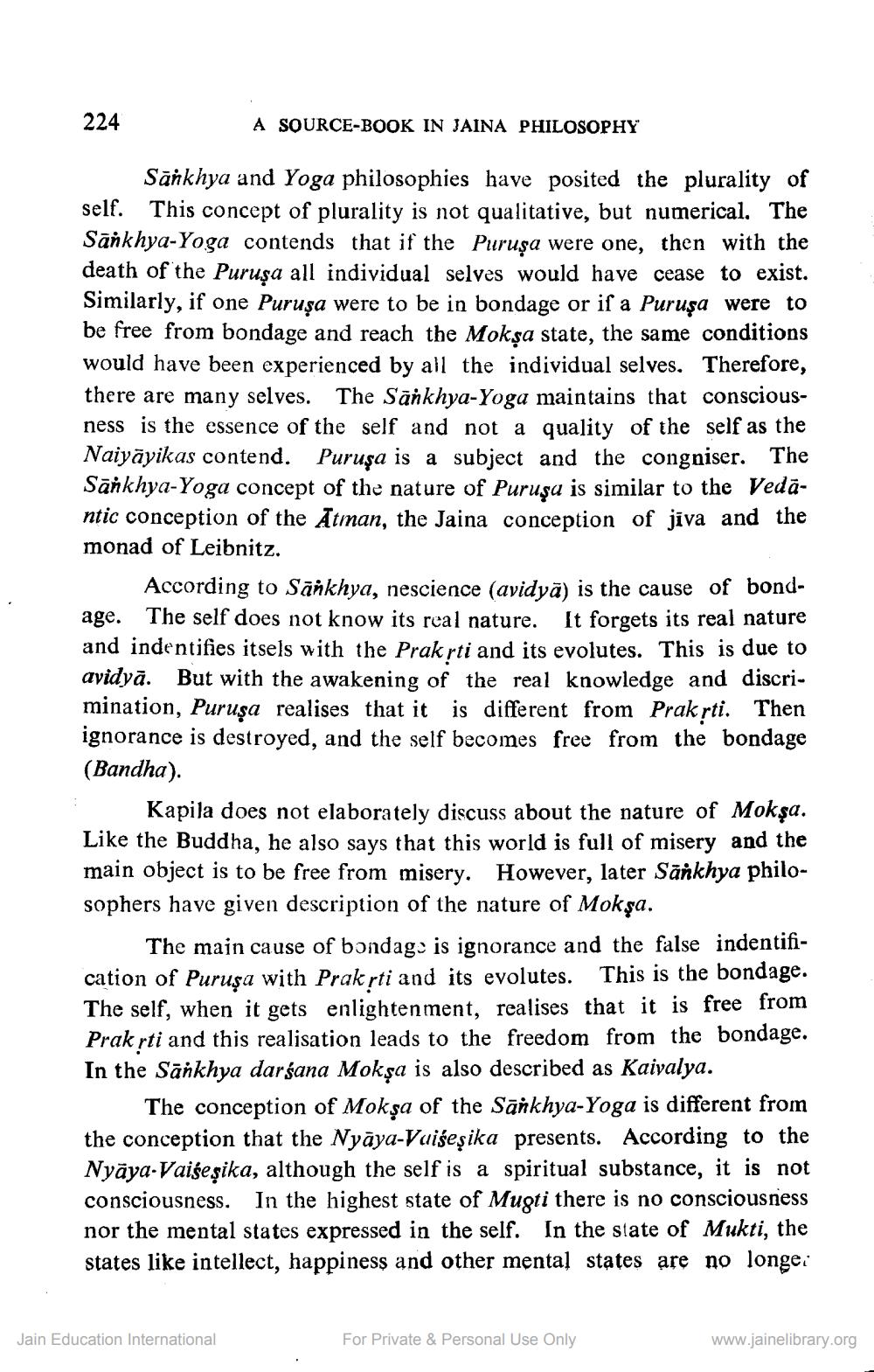________________
224
A SOURCE-BOOK IN JAINA PHILOSOPHY
Sānkhya and Yoga philosophies have posited the plurality of self. This concept of plurality is not qualitative, but numerical. The Sankhya-Yoga contends that if the Puruşa were one, then with the death of the Puruşa all individual selves would have cease to exist. Similarly, if one Puruşa were to be in bondage or if a Puruşa were to be free from bondage and reach the Mokșa state, the same conditions would have been experienced by all the individual selves. Therefore, there are many selves. The Sānkhya-Yoga maintains that consciousness is the essence of the self and not a quality of the self as the Naiyāyikas contend. Puruşa is a subject and the congniser. The Sāňkhya-Yoga concept of the nature of Puruşa is similar to the Vedāntic conception of the Ātman, the Jaina conception of jiva and the monad of Leibnitz.
According to Sankhya, nescience (avidyā) is the cause of bondage. The self does not know its real nature. It forgets its real nature and indentifies itsels with the Prakrti and its evolutes. This is due to avidyā. But with the awakening of the real knowledge and discrimination, Puruşa realises that it is different from Prak sti. Then ignorance is destroyed, and the self becomes free from the bondage (Bandha).
Kapila does not elaborately discuss about the nature of Mokşa. Like the Buddha, he also says that this world is full of misery and the main object is to be free from misery. However, later Sänkhya philosophers have given description of the nature of Mokşa.
The main cause of bondag- is ignorance and the false indentification of Purusa with Prak rti and its evolutes. This is the bondage. The self, when it gets enlightenment, realises that it is free from Prak rti and this realisation leads to the freedom from the bondage. In the Sānkhya darśana Mokşa is also described as Kaivalya.
The conception of Mokşa of the Sānkhya-Yoga is different from the conception that the Nyāya-Vuiseșika presents. According to the Nyāya-Vaiseșika, although the self is a spiritual substance, it is not consciousness. In the highest state of Mugti there is no consciousness nor the mental states expressed in the self. In the state of Mukti, the states like intellect, happiness and other mental states are no longe:
Jain Education International
For Private & Personal Use Only
www.jainelibrary.org




